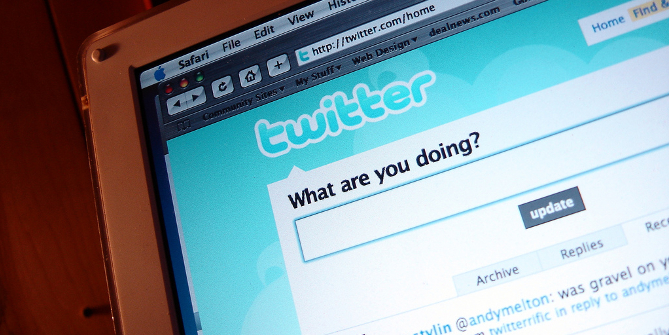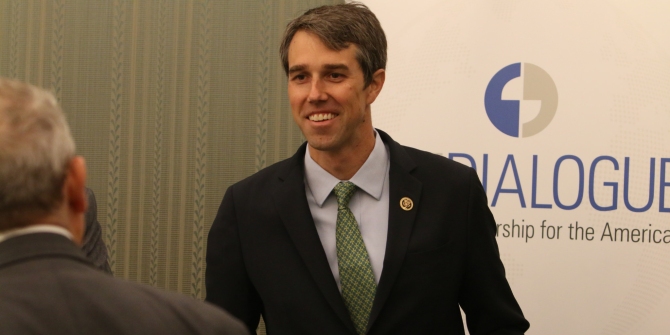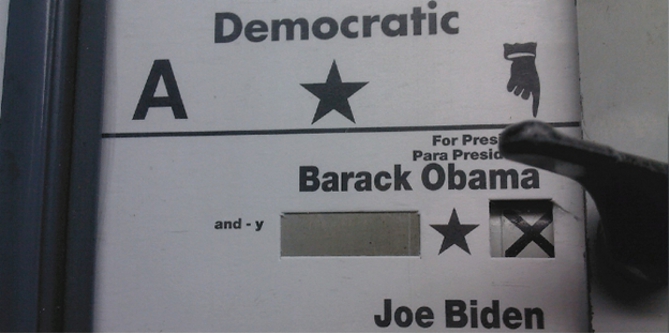

 Heather Evans, Kayla Brown, and Tiffany Wimberly have been tracking how Hillary Clinton and Donald Trump use Twitter in this year’s presidential election campaign. In their latest update, they find that over the last two months, Clinton has not only out-tweeted Trump, but has also discussed the issues, including issues that affect women disproportionately as a group, to a greater degree.
Heather Evans, Kayla Brown, and Tiffany Wimberly have been tracking how Hillary Clinton and Donald Trump use Twitter in this year’s presidential election campaign. In their latest update, they find that over the last two months, Clinton has not only out-tweeted Trump, but has also discussed the issues, including issues that affect women disproportionately as a group, to a greater degree.
This summer, two of my undergraduate students (Kayla Brown and Tiffany Wimberly) and I have been tracking the ways that the presidential candidates are using Twitter. We have collected all of the tweets they have sent, and have hand-coded them for content and tone. Following from my earlier work on this topic, we are coding their tweets in the following ways:
- Campaign tweets are those where the candidate discusses where they have been, what groups they have met with, and where they are going next. These are posts you would typically see on a message board that are meant to provide information about the candidate’s whereabouts or build up a candidate’s image. Tweets asking followers to get involved in an election are also coded as campaign tweets.
- Media tweets are those where a candidate links up a story about themselves from the news. Newspaper endorsements are coded as media tweets.
- Issue Position tweets and Policy Statement tweets are both about issues in American politics. The differences between them lie in whether a candidate actually takes a position on an issue. For instance, if a candidate states “I will fight for X”, then their tweet is coded as an issue position. If a candidate states “here are some facts on X”, then their tweet is coded as a policy statement.
- Attack tweets are those where a candidate directly criticizes a media entity, government , democracy, their opponent, the opposing party, or its leaders
- Personal tweets are those that have nothing in particular to do with the campaign. For instance, when a candidate says “my thoughts and prayers are with X family due to the passing of their grandfather.”
Tweets were also coded for whether they mentioned any “female” or “male” issues at all. As described in my earlier post here, “female issues” tend to be those recognized in the academic literature as disproportionately affecting women as a group, such as healthcare, welfare, education, and the environment. “Male issues” tend to be those about the economy, business, the Second Amendment, war, and immigration.
In our post from last month, we discussed how in June, Hillary Clinton was out-tweeting Donald Trump. She discussed issues significantly more often than he did, and she attacked him more than he did her. Donald Trump, on the other hand, criticized everyone else (including government and the media).
We have now collected data for two months, and not much has changed. Hillary Clinton is still out-tweeting Donald Trump by a margin of 2:1. From June 1st to July 31st, Hillary Clinton sent a total of 1195 original tweets, while Donald Trump sent 581.
In terms of the content of their tweets, Clinton is far out-tweeting Trump when it comes to issue positions. She spent approximately 20 percent of her tweets these past two months discussing issues, while he tweeted about these same issues in only 4.5 percent of his tweets.
Clinton is also spending significantly more time discussing “female issues” than Trump, who sent no tweets at all about those topics last month. Clinton also out-tweeted him on “male issues” over the past two months.
Figure 1 – Tweets sent by Trump and Clinton in June & July 2016
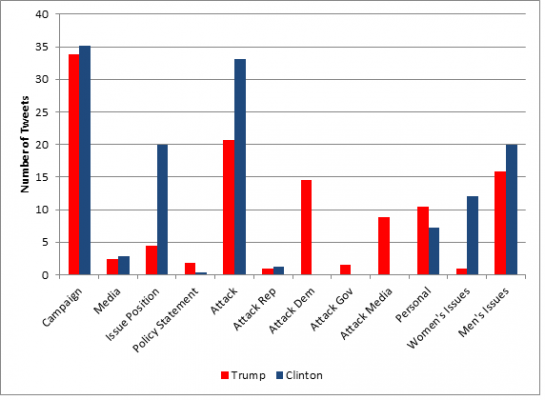
Clinton attacks Trump more than he does her, while Trump attacks Democrats, the government, and the media. Almost 10 percent of his tweets criticize the media.
These results line up with the various claims that Donald Trump presents fewer plans for America than Hillary Clinton. If you visit his campaign website, the first issue listed under “Issues” is Trump University. Clinton, on the other hand, lists taxes first.
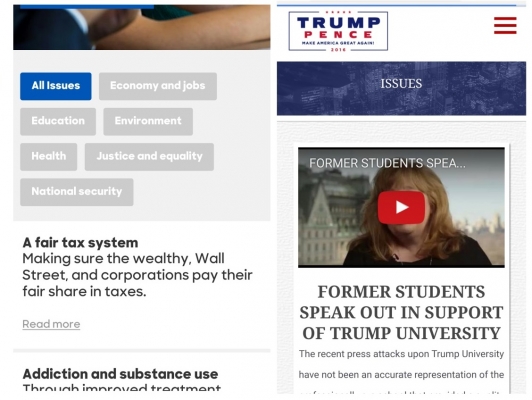
Sources: https://www.hillaryclinton.com/issues/, https://www.donaldjtrump.com/issues/
On the last night of the Republican Convention, Ivanka Trump took the stage and talked about how her father is working on issues important to women. He definitely isn’t paying attention to “female” issues on Twitter. The data shows that he isn’t discussing many issues on Twitter at all.
Featured image credit: Andy Melton (CC- BY-SA-2.0)
Please read our comments policy before commenting.
Note: This article gives the views of the author, and not the position of USAPP – American Politics and Policy, nor the London School of Economics.
Shortened URL for this post: http://bit.ly/2bbHT6f
_________________________________
 Heather Evans – Sam Houston State University
Heather Evans – Sam Houston State University
Heather Evans is an Associate Professor in the Department of Political Science at Sam Houston State University. Her primary research interests are political participation and behavior, public opinion, competitive elections, media and politics, the status of women in the political science discipline, and political psychology.
 Kayla Brown
Kayla Brown
Kayla Brown is a junior majoring in political science at Sam Houston State University.
 Tiffany Wimberly
Tiffany Wimberly
Tiffany Wimberly is a junior majoring in political science at Sam Houston State University.


